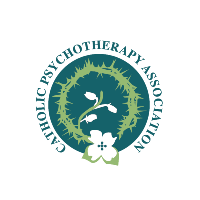
- 904.420.0536
Developmental Barriers to Clergy Health (Part 1)
The number of Catholic priests in the United States has steadily declined since 1970, going from 59,192 to 36,580 in 2018 (CARA, 2019). Thus, men began eliminating the priesthood as a vocational option before the clergy sexual abuse crisis. The downward statistical trend is a reminder of the significant barriers men experience in their discernment of the priesthood (Isacco & Tirabassi, 2018). The barriers contribute to an unhealthy discernment process full of self-doubt, irrational thoughts, psychological consternation, avoidance, and feelings of loneliness. Therefore, the discernment phase is ripe with opportunities to help men overcome those barriers and to establish a positive trajectory to healthy development in subsequent phases.
Some men move forward with their discernment by applying to the seminary, which is typically seen as a positive step. The USCCB (2015) mandated that seminary applicants receive a psychological evaluation before their admittance. Despite previous studies reporting that clergy applicants are generally psychologically healthy (Plante et al., 2005; Plante & Lackey, 2007; Thomas & Plante, 2015), the psychological evaluation can identify important concerns such as risk factors for sexual offending as well as other contraindications to an authentic vocation. This portion of the presentation reviews original research findings from testing data (MMPI-2 and MMPI-2-RF) with 150 clergy applicants (Isacco, 2017; 2019). Results indicate that the applicants had aggregate scores below the T of 65 cut-offs but scored comparatively higher on the underreporting/defensiveness validity indices and overcontrolled hostility than the national norm group. Applicants scored significantly lower on all scales mapped onto risk factors when compared to a norm group of child sexual offenders except underreporting.
Newly ordained priests experience a significant role transition in a current hostile climate. The extant literature has presented a mixed picture of psychological concerns among the clergy. For newly ordained, the developmental task in this difficult context is to be a good priest while preventing burnout, maintaining fraternal community (Tirabassi, Porada, & Feiberg, 2015), and deepening their dynamic relationship with God, the latter of which is the core their health (Isacco et al., 2016). The newly ordained stage is the opportunity to stabilize a priestly identity and to establish a sustainable approach to health.
Learning Objectives:
Interventions to Improve Clergy Health (Part 2)
Identification of barriers and concerns provide insight into what needs to be repaired. Part 2 of the presentation focuses on using the best available research, clinical experience, and expertise, and input from various stakeholders (e.g., mental health professionals, formation faculty, post-ordination personnel) to develop evidence-based interventions aimed at improving health at the key developmental stages of discernment, formation, and newly ordained. The presentation will capitalize on the collective expertise of CPA membership by fostering discussion and input in the following areas:
Learning Objectives:
This program does not qualify for NBCC credits

The new Master of Science in Clinical Psychology at Saint Mary’s University of Minnesota is truly one of a kind — the only program in the U.S. that fully integrates Catholic faith and ethics into clinical psychology training. Rooted in the Lasallian Catholic tradition, this program blends rigorous clinical training with a faith-based perspective, emphasizing ethics, spirituality, and holistic well-being. Designed to prepare compassionate, evidence-based mental health professionals, this program helps you align your values with your practice — and better serve your clients.
- Brief profile about me and the MS in Clinical Psychology Program
- Brief profile about one of the new MS in Clinical Psychology students
- Apply to the MS in Clinical Psychology Program

MINNEAPOLIS | ROCHESTER | WINONA | ONLINE
SMUMN.EDU
Anthony Isacco, PhD is program director, professor, and head of clinical research in the new Catholic faith-integrated MS in Clinical Psychology program at Saint Mary's University of Minnesota. He is a licensed psychologist and is the principal of Puritan Psychological Services, a small private practice focused on helping clergy, seminarians, and women religious live healthy, holy, and happy lives in their vocations. Dr. Isacco is a generalist, with areas of expertise in the psychology of men and masculinity, fatherhood, psychological assessment, and religious/spiritual integration in psychology. He is a Fellow of the St. John Paul II Foundation. He sits on the Advisory Board of Saint Paul Seminary, Diocese of Pittsburgh and the Formation Team of Saint Cyril and Methodius Byzantine Seminary, Eparchy of Pittsburgh. He is a graduate of Franciscan University of Steubenville (BA), Boston College (MA), and Loyola University of Chicago (PhD). Dr. Isacco lives in Pittsburgh, PA with his wife and four daughters